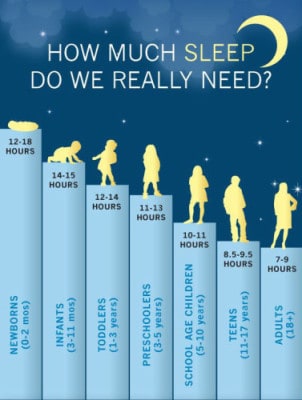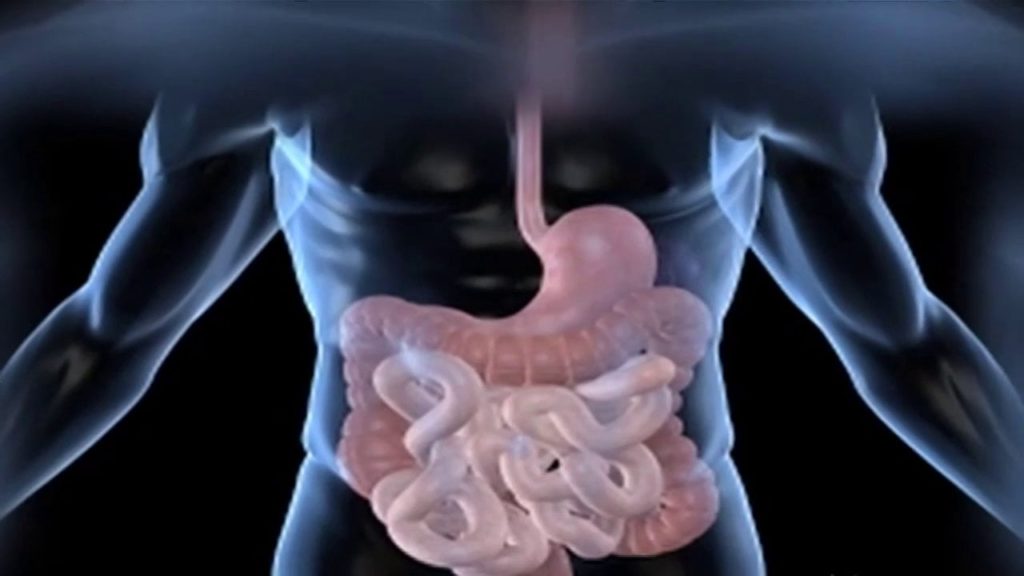Busy Life healthy Diet
Healthy Diet for a busy life Mary (not her real name) is a patient of my practice for the last 2 years. A 45-year-old office manager for a busy real estate office, married for twenty years and a mother of 3 adorable children ranging from 15, 12 and 4 years old. Mary maintained a comfortable weight of 140 for her medium size frame of 5’ 6” till her late 30s and still remember the compliments she got from her husband and friends of how fast she “bounced back” after the birth of her 2 older children. Her weight starting at 178 and was able to drop to 170 in the first year eating a sensible anti-angiogenesis mostly vegetable-based diet as we have discussed every time during her visits to my clinic. After Thanksgiving showing a new weight of 183, obviously she is not happy and citing the end of year stress of office and family left her no choice other than returning to her old habit of skipping her breakfast with just a cup of coffee in the morning and a fast food drive-through or lunch delivery from her favorite Italian place for lunch, that is, if she had the […]
Read MoreHow many hours of sleep is enough?
How many hours of sleep is enough? Behind the ever increasing business productivity in this new economy, there is a seemingly gradually erosion of our sleeping time. In addition to the multitude of family needs, there is hardly any time left for taking care of our personal well being such as exercise and leisure time that is essential to maintain our good health. Many of us, therefore, are looking for the “optimal” amount of sleep, i.e. the minimal amount of sleep a night without compromising our general well being. Before providing an answer to this surprisingly complex question, it’s worth taking the time to review the science of health outcomes as they relate to sleep. Sleep affects many aspects of health and function. There are three broad categories: cognitive, mental/behavioral, and physiologic. Cognitive function includes such processes as memory, learning, and abstract reasoning; whereas mental/behavioral health can include general quality-of-life indicators and risks for such specific diagnoses as anxiety or depression. The category of general physiology includes appetite, weight gain, and metabolism, along with the processing of carbohydrates (yes, not enough sleep can make you fat!), and its effects on cardiovascular health. The National Sleep Foundation recently […]
Read MoreAcupressure Massage Therapy
Acupressure Massage Therapy (AMT) What should you expect in a session? During an Acupressure Massage Therapy (AMT) session, the patient lies face down wearing their undergarments or loose-fitting clothing, such as that typically worn while exercising or doing yoga, draped with a towel on a soft massage table. Practitioners use their fingers and elbows to apply varying degrees of pressure to acupressure spots, focusing mainly on the head, neck, and lower back alongside the muscle/tendon juncture adjacent to the spinal process from the cervical spine (neck) all the way down to the sacrum (buttock) as well as some supplementary spots at the shoulder blade, elbow, knee or foot depends on individual’s lesions. AMT practitioner works on patient’s acupressure spots, which are the “off switches” for the pain signal. Those therapeutic spots are usually located NOT on the lesion itself, but on a different part of the body. For example, for the lesions on the knee, ankle, and feet, the treatment is mainly on the “off switches” located at the buttock. Those spots are often quite tender, feedback from you during the treatment is crucial to correctly identify the “off-switches”- Is it painful here? The treatment session can last from […]
Read MoreHealthy Diet for a busy life
Mary (not her real name) is a patient of my practice for the last 2 years. She is a 45 years old office manager for a busy real estate office, married for twenty years and a mother of 3 adorable children ranging from 15, 12 and a 4 years old who is also known as the “surprise God-sent princess” or “what-have-we done-to-us Little Pre-K devil” depends on which day you asked her. Mary was able to maintain a comfortable weight of 140 for her medium size frame of 5’ 6” till her late 30s and still remember the compliments she got from her husband and friends of how fast she “bounced back” after the birth of her 2 older children. Her weight starting at 178 and was able to drop to 170 in the first year eating a sensible anti-angiogenesis mostly vegetable-based diet as we have discussed every time during her visits to my clinic. A recent physical visit after Thanksgiving showing a new weight of 183, obviously she is not happy and citing the end of year stress of office and family left her no choice other than returning to her old habit of skipping her breakfast with just […]
Read MoreDiabetes Type 2 Can a person be “cured” ? compelling evidence about diabetes.
Diabetes Type 2? As the Medical Director of the Medically Supervised Weight Loss Program at IU Health Arnett, a program DR. Sarah Hallberg created. A board certified in obesity medicine and internal medicine and has a Master’s Degree in Exercise Physiology. She has recently created what is only the second non-surgical weight loss rotation in the country for medical students. Her program has consistently exceeded national benchmarks for weight loss and has been highly successful in reversing diabetes and other metabolic diseases. B.S., Kinesiology & Exercise Science, Illinois State University, 1994 M.S., Kinesiology & Exercise Science, Illinois State University, 1996 M.D., Des Moines University, 2002 Watch this video: Can Diabetes be cured
Read MoreStress Eating
Stress eating, or emotional eating, is when you eat in order to escape whatever bad feelings you’re experiencing, in the hope that food will make you feel better. Sometimes it’s a conscious decision, but more often it’s just a mindless response to a vague, negative emotion. Emotional eating happens to many of us from time to time. Maybe you’ve cheered yourself up with a bowl of ice cream after an unusually tough day, or sneaked a few French fries from your best friend’s plate while recapping a disastrous date. But when emotional eating gets out of hand—when eating is the first and most common response to negative thoughts and feelings, especially when you start to packing in weight—it’s time to get a grip. To overcome stress eating, we need to distinguish stress eating from true, physical hunger. Following are some of the telltale signs you are engaging in stress eating: It comes on suddenly- you are craving chocolate ice cream all of a sudden when you are feeling tense . On the other hand, physical hunger tends to come on gradually. You’re starting to feel hungry but you can wait to eat, which gives you some time to choose wisely […]
Read MoreLeaky Gut Syndrome
While some intestinal permeability is a normally occurring phenomenon recognized by mainstream science, claims for the existence of leaky gut syndrome (LGS) are mostly made by practitioners of alternative medicine. These supporters say that undigested food particles can pass through the “leaky” bowel wall and into the rest of body, leading to a large number of conditions ranging from obesity, migraines to autism. LGS is said to have symptoms including bloating, gas, cramps, food sensitivities, and aches and pains. Little is known about other causes of leaky gut that aren’t linked to certain types of drugs, radiation therapy, or food allergies. LGS remains a controversial topic among physicians and gastrointestinal scientists, they often doubt whether it is even a true science. The skepticism is understandable given the sometimes hard to sustain claims of disease attributed to LGS from multiple sclerosis to chronic fatigue syndrome and irritable bowel syndrome with little evidences other than some anecdotal evidences to support its validity. Given the only solid evidence of proven diseases experience “leaky gut” are patients with celiac disease and Crohn’s disease. Whether hyperpermeability is more of a contributing factor or a consequence is unclear. Why or how this would happen in […]
Read MoreHow do you know you have too much easy carbohydrates/sugar?
When it goes to adopting a healthy lifestyle and maintain a healthy weight, there is nothing worse than consuming too much simple carbohydrate (low fiber, easy to be digested type such as white bread and most of the highly processed food) and sugar (including glucose, fructose; basically anything ending with the suffice -ose). Note that fiber serves as a “buffer” to avoid the rapid sugar absorption, hence immediate insulin spiking. In addition, eating a lot of sugar also means it’s likely you’re not eating enough protein and fiber, both important nutrients for sustained energy. Any excess of sugar not consumed by your body (not enough activities) get converted into fatty acids and triglycerides for long-term energy storage, i.e. your body fat. Following are probably the signs you have too much of them. 1. You constantly crave sugary things The more sugar you eat, the more you’ll crave it, that means consuming more sugar – it becomes a vicious and addictive cycle you cause a hormonal response in your body that’s like a wave, it brings you up and then you crash down and it triggers your body to want more sugar. 2. You feel foggy after a meal and more […]
Read MoreStress Related Health Issues and Solutions
In my practice, patients sometimes puzzled by my line of questioning involving their relationship with their family members and social circles, also working environment and even financial situation in addition to the routine standard history taking. I solicit that information to gauge what I believe to be an important but often neglected wellbeing vital sign- their stress level. Especially for those patient that comes in with many deemed as “psychological” complaints such as chronic fatigue/low energy, low sex drive, Fibromylagia, irritable bowel syndrome (IBS); those with immune system related complaints such as frequent infections (upper respiratory, urinary tract infection, etc), allergy, and eczema; and patients with heighten cardiovascular disease factors involving obesity, hypertension, and elevated glucose (pre-diabetes). For two years in a row, the annual stress survey commissioned by the American Psychological Association has found that about 25% of Americans are experiencing high levels of stress (rating their stress level as 8 or more on a 10-point scale), while another 50% report moderate levels of stress (a score of 4 to 7). Perhaps not surprising, given continuing economic instability in this country and abroad, concerns about money, work, and the economy rank as the top sources of stress for Americans. […]
Read MoreGrapes for Fighting Cancer? Little Fruit, Big Promise
What if the answer to cancer was as simple as grapes? Sounds unbelievable, but the idea that a common, tiny fruit could stop cancer in its tracks is actually very real. To understand how this is possible, we must first understand how cancer forms and survives. Our bodies contain more than 60,000 miles of blood vessels. Veins, capillaries and arteries keep us alive by supplying our bodies with the oxygen and nutrients we need to live. When new tissues are formed, new blood vessels are formed to keep them alive. This function of forming new blood vessels is called angiogenesis. While it’s beneficial in some cases, blood vessel formation is also what fuels cancerous cells and tumors. Normally, the body has the ability to balance angiogenesis so that it makes new blood vessels when it needs to and scales them back as necessary. But once this balance is knocked out of whack, cancer has room to develop because nothing is preventing this abnormal formation of blood vessels that feeds tumors. We all have tumors in our bodies, and the amount of tumors in our bodies increases with age, but they don’t grow and become harmful unless they have a blood […]
Read MoreExperience Healthy Aging in 5 Easy Steps
We can’t avoid the aging process, but we can all age with an able and disease-free body. Once we understand what to expect as we age, we can work with our bodies and engage in a positive ongoing process to achieve healthy aging. So what is considered “normal” aging? Different parts and systems within the body exhibit their own signs of aging, and each is manageable if we know what to expect. The cardiovascular system, also known as the circulatory system, consists of the heart, arteries, veins and capillaries. Your heart rate gradually slows down and the heart becomes slightly larger. Our blood vessels and arteries become stiffer, and the heart has to work harder to pump blood, which could lead to high blood pressure. Chances are, you have felt the changes to your bones, joints and muscles. Bones tend to shrink in density and size, and become more susceptible to fractures. By age 80, we lose up to two inches in height. Our muscles lose strength and flexibility, and our coordination and balance decrease as a result. And as muscle mass decreases, fat takes its place and we need fewer and fewer calories to maintain our weight, which means […]
Read MoreThe Amazing Grape
Who knew the grape was so amazing? The Ancient Greeks long used different parts of grapes for their medicinal qualities, but now modern science is re-discovering all the big things this tiny little fruit can do. Studies have shown that the extracts of grape seeds and red wine have many benefi ts, especially when it comes to promoting healthy aging. Among the ailments grape seed extract is purported to help treat and prevent are complications from diabetes, high blood pressure, high cholesterol, gastrointestinal disorders, constipation, poor circulation, macular degeneration and osteoporosis. Grape seed extract holds strong antioxidant properties that is considered stronger than vitamins C and E, and is one of the few antioxidants that can penetrate the blood brain barrier to protect nerve and brain tissue. But what’s most exciting about grape seed extract is how fi ercely it fi ghts infl ammation, which leads to so many health problems in people of all ages and all walks of life. Decreasing infl ammation is at the core of treating and preventing some of the most common and widespread diseases affecting Americans, and taking measures to reduce infl ammation can greatly improve and maintain your health as you age. Grape […]
Read More




























